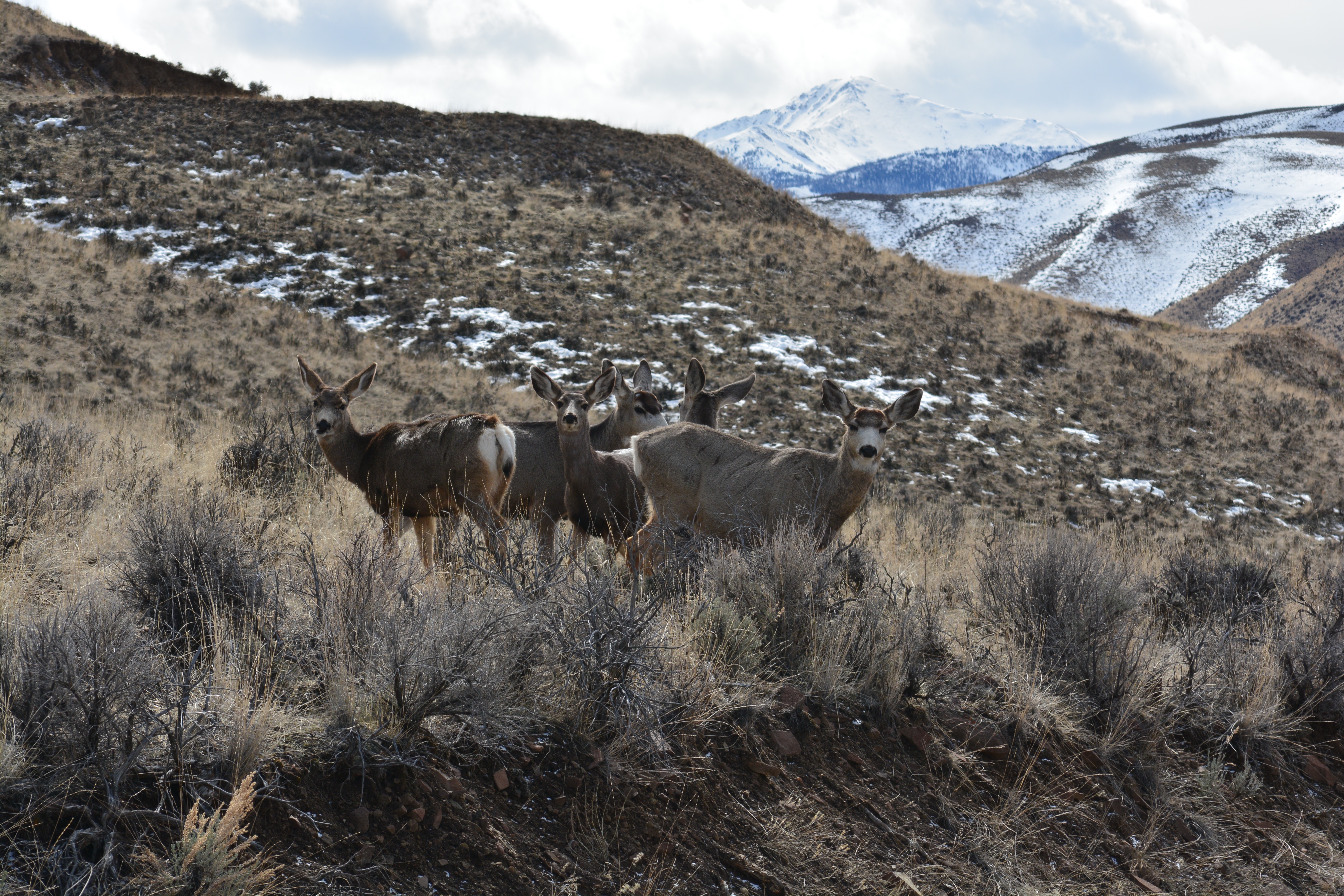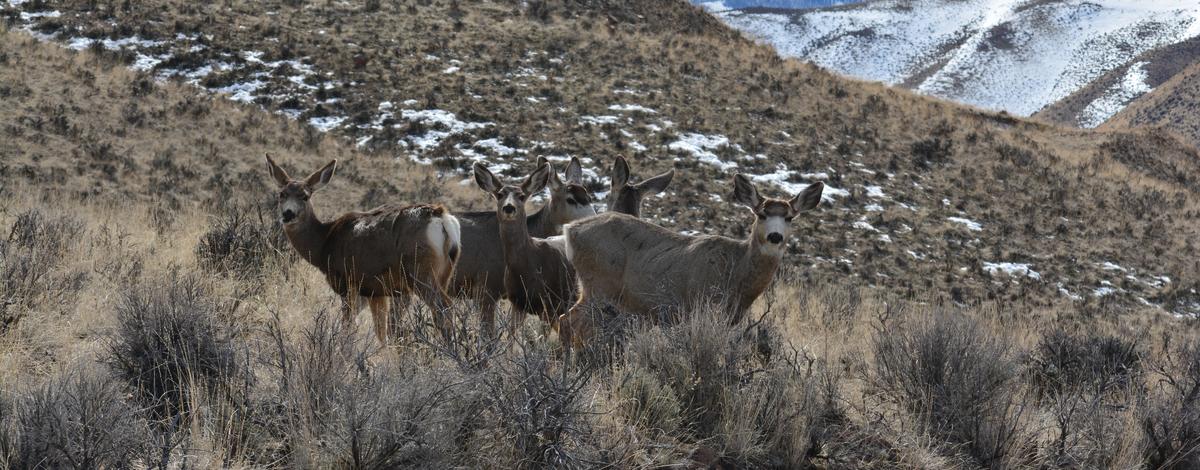Despite warm, spring weather, the Boise River Wildlife Management Area remains closed to all public use to protect wildlife. The area is a refuge for deer, elk and other wildlife that are recuperating from a severe winter, and it will reopen when herds migrate off the WMA.
“We want to give these animals as much time as they need to recover,” WMA manager Krista Biorn said. “The only way they can do that is by allowing their bodies to heal by obtaining energy from the vegetation that is beginning to emerge, spending their days on the warm south-facing slopes where it is warm, and limiting their movement to conserve any small amount of energy they may have left.”
Fish and Game’s Georgetown, Portneuf and Montpelier WMAs in southeast Idaho are currently closed, but will reopen to the public on April 1.

Regardless of location, recreationists should avoid disturbing big game any place the animals remain on winter range. Any disturbance from humans, or dogs, could force them to move out of an area, or burn their last energy reserves.
Anna Owsiak, Fish and Game’s regional habitat manager in Pocatello, said antler hunters are frequently disturbing big game herds.
“That’s our biggest issue,” she said. “It’s not helping the deer at all.”
Statewide, Fish and Game biologists have seen about 50 percent of radio-collared mule deer fawns die this winter from malnutrition and related causes, and malnutrition deaths often carries over into spring.
Warmer weather brings lots of nutritious vegetation, but deer, elk and pronghorn have to adjust to a rich diet, which can be difficult when they’re weak.
Fish and Game officials appreciate the public’s patience and assistance in helping wildlife recover after a record winter. The difference between people complying with the closure or not could mean life and death to many of these animals.
People are also reminded if they violate the WMA closure, they can be subjected to a citation and a fine.

